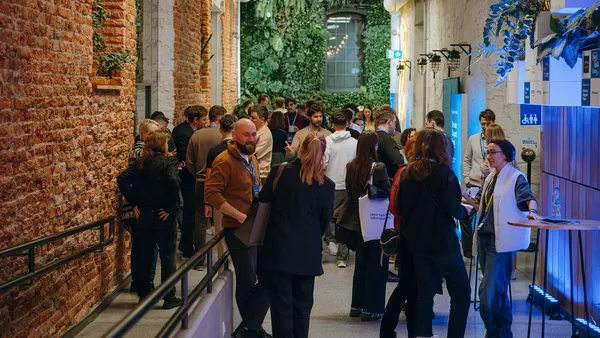Over the past three months, the world has witnessed the resilience and spirit of the Ukrainian people. We’ve seen how an entire population has responded to unimaginable circumstances and demonstrated not only a will to survive, but to persevere and succeed.
We know this spirit well from the strong and vibrant Ukrainian startup community, which boasts its share of “unicorn” startups including GitLab, Grammarly, Genesis, People.ai, and Firefly Aerospace.
To help Ukrainian entrepreneurs maintain and grow their businesses, strengthen their community and build a foundation for post-war economic recovery, in March we announced a $5 million Google for Startups Ukraine Support Fund to allocate equity-free cash awards throughout 2022. Selected Ukraine-based startups will receive up to $100,000 in non-dilutive funding as well as ongoing Google mentorship, product support, and Cloud credits.
Meet the first recipients
Today, we are proud to announce the first cohort of recipients of the Google for Startups Ukraine Support Fund.
- Almexoft: A low-code platform for business process automation and electronic document management.
- CareTech Human: A fully-automated, plug-and-play device for daily health checks and early disease detection.
- Discoperi: An AI-powered video control system that collects traffic data to prevent car accidents and make roads safer.
- Dots Platform: A cloud-based, all-in-one food delivery platform.
- Elai.io: A text-to-video platform that allows users to generate video content with virtual presenters from text.
- Effy.ai: An HR software that empowers leaders to build high-performing teams.
- Handy.ai: An internal сommunications platform offering a personal virtual assistant for employees.
- Lab24: A digital medical laboratory marketplace connecting customers to affordable services.
- Mindly: An end-to-end mental health platform for online therapy that offers AI-powered patient care and clinical admin automation.
- PRAVOSUD: A litigation analytics platform enabling lawyers to craft successful legal strategies.
- pleso therapy: A mental health platform that efficiently matches patients with therapists.
- Private Tech Network: An AI-driven “venture capital-as-a-service” platform, designed to make fundraising faster and more efficient.
- Releaf Paper: The world's first manufacturer of paper products made from fallen leaves.
- Respeecher: A high-fidelity voice cloning (voice conversion) system for content creators.
- Skyworker: A hiring app providing tech recruiting and human resources services.
- VanOnGo: An AI-powered, direct-to-consumer delivery platform.
- ZooZy: A one-stop pet care mobile app streamlining all of your pet’s needs—food, training advice, healthcare, and other essentials—into a single platform.
Startups are selected based on the criteria and evaluation of an interview, and Ukrainian-founded startups that meet the criteria can apply on a rolling basis here. And while some companies may not qualify for the Fund itself, Google for Startups continues to offer other forms of support that can be found here.
Key challenges, according to one Ukrainian founder
We spoke to Ukraine Support Fund recipient Dimitri Podoliev, CEO and co-founder of mental health support app Mindly, to better understand the specific challenges that Ukrainian founders face as they navigate running their businesses during a war.
When Mindly participated in last year's Google for Startups Accelerator: Europe - for healthtech and wellbeing startups - Podoliev’s focus was “to build a team that will be able to quickly, efficiently and effectively use a data-driven approach to build an amazing product.”
 Learn more about our new Google for Startups Ukraine Support Fund recipients spanning healthcare to AI.
Learn more about our new Google for Startups Ukraine Support Fund recipients spanning healthcare to AI.
 Learn more about our new Google for Startups Ukraine Support Fund recipients spanning healthcare to AI.
Learn more about our new Google for Startups Ukraine Support Fund recipients spanning healthcare to AI.
 Introducing the first 2024 cohort of Google for Startups Ukraine Support Fund recipients.
Introducing the first 2024 cohort of Google for Startups Ukraine Support Fund recipients.
 Applications are now open for a $10 million Google for Startups Ukraine Support Fund
Applications are now open for a $10 million Google for Startups Ukraine Support Fund
 Learnings and achievements from the first year of the Google for Startups Ukraine Support Fund
Learnings and achievements from the first year of the Google for Startups Ukraine Support Fund
 Meet the third batch of Google for Startups Ukraine Support Fund recipients. This funding aims to support the Ukrainian startup ecosystem.
Meet the third batch of Google for Startups Ukraine Support Fund recipients. This funding aims to support the Ukrainian startup ecosystem.









